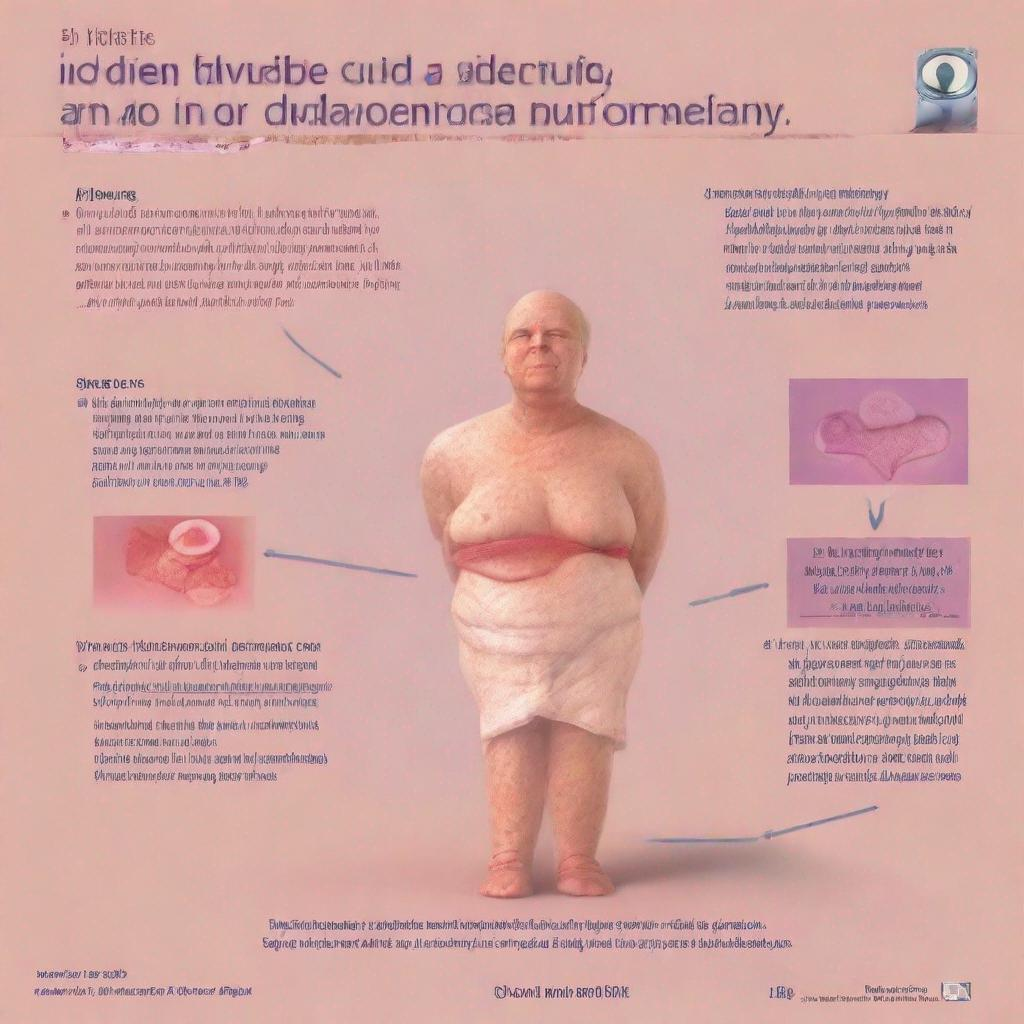## Iodine Deficiency: A Comprehensive Guide
### Introduction
Iodine deficiency is a nutritional disorder that arises from insufficient iodine intake. Iodine is an essential nutrient for the proper functioning of the thyroid gland, which plays a crucial role in metabolism, growth, and development. When the body lacks adequate iodine, it can lead to a range of health problems, most notably hypothyroidism.
### Symptoms
The symptoms of iodine deficiency vary depending on the severity and duration of the condition. Common signs and symptoms include:
– Fatigue
– Weakness
– Weight gain
– Cold intolerance
– Dry skin
– Constipation
– Hair loss
– Impaired cognitive function
– Growth retardation
### Diagnosis
Diagnosis of iodine deficiency typically involves a physical examination and blood tests known as thyroid function tests. These tests measure the levels of thyroid hormones in the blood and can help determine if the thyroid gland is functioning properly.
### Prevention
Preventing iodine deficiency is crucial for maintaining optimal thyroid health. The most effective way to prevent the condition is through iodine supplementation. This can be achieved through the consumption of iodized salt, which is fortified with iodine. In areas where iodized salt is not readily available, iodine supplements may be recommended.
### Treatment
Treatment for iodine deficiency typically involves iodine supplementation to restore adequate iodine levels in the body. In cases of severe hypothyroidism, thyroid hormone replacement therapy may also be necessary. This therapy involves taking synthetic thyroid hormones to compensate for the insufficient production of natural thyroid hormones.
### Complications
Untreated iodine deficiency can lead to various complications, including:
– **Hypothyroidism:** A condition characterized by an underactive thyroid gland, which can cause fatigue, weight gain, and impaired cognitive function.
– **Goiter:** An enlargement of the thyroid gland, which can be visible as a swelling in the neck.
– **Cretinism:** A severe form of iodine deficiency that affects infants and young children, leading to physical and mental disabilities.
### Types of Doctors Typically Involved
The diagnosis and treatment of iodine deficiency typically involve the following types of doctors:
– **Endocrinologists:** Specialists in the endocrine system, including the thyroid gland.
– **Family physicians:** Doctors who provide primary care for patients, including diagnosis and treatment of common conditions.
– **Pediatricians:** Doctors who specialize in the care of children and infants, including the diagnosis and treatment of iodine deficiency-related conditions.
### Related Terms
– **Essential nutrient:** A nutrient that the body cannot produce on its own and must be obtained from food.
– **Endemic disorder:** A disease that is prevalent in a specific geographic area.
– **Nutritional deficiency:** A condition caused by an insufficient intake of essential nutrients.
– **Maternal iodine deficiency:** Iodine deficiency during pregnancy, which can lead to complications for both the mother and the fetus.
– **Neonatal hypothyroidism:** A condition in which infants are born with inadequate thyroid hormone levels.




